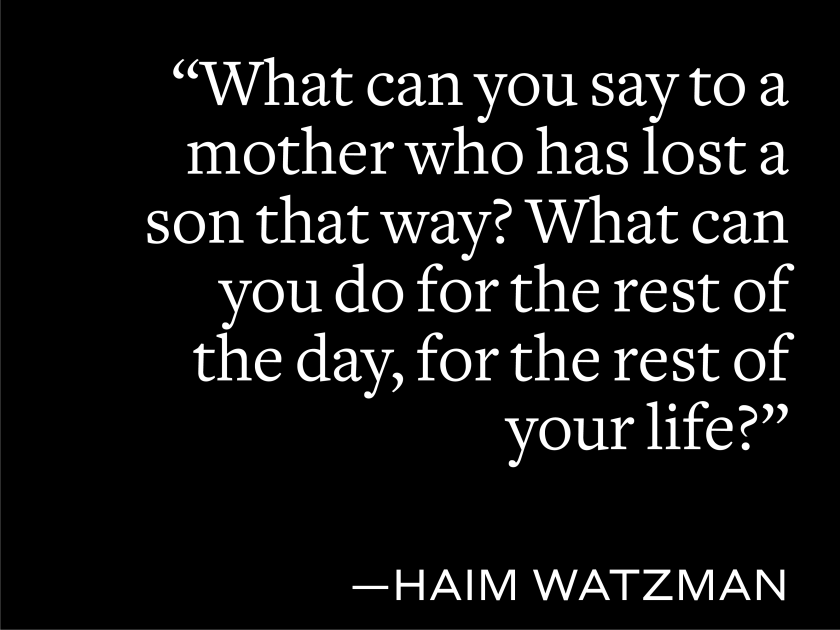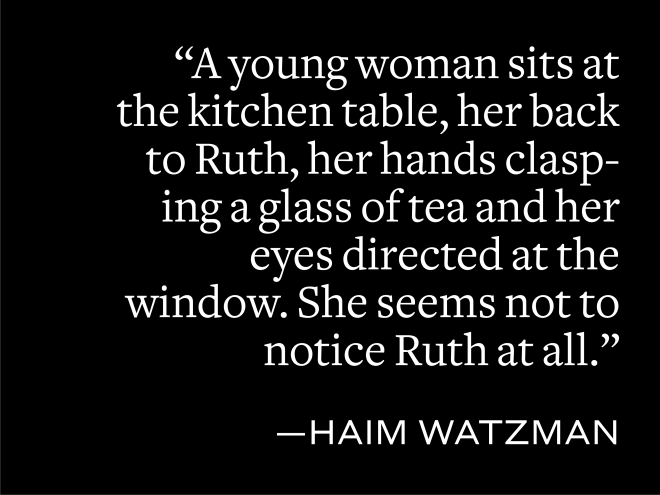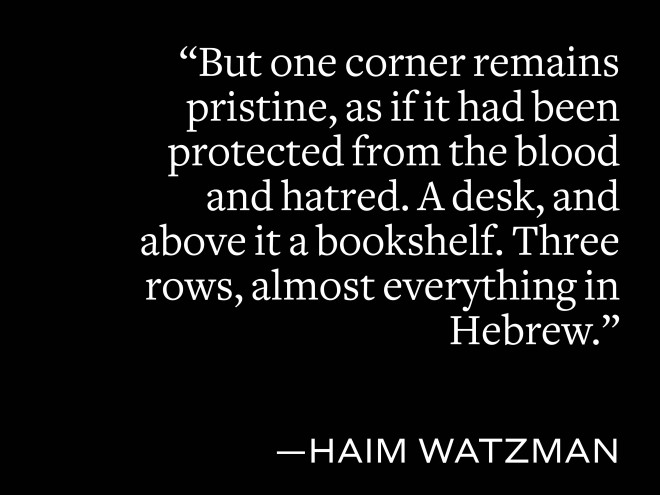
This piece is one of an ongoing series that we will be sharing in the coming days from Israeli authors and authors in Israel.
In collaboration with the Jewish Book Council, JBI is recording writers’ first-hand accounts, as shared with and published by JBC, to increase the accessibility of these accounts for individuals who are blind, have low vision or are print disabled.
At Jewish Book Council, we understand the value of fiction and stories to share individual experiences. It’s more important now than ever to give space to these voices and narratives.
This is a work of fiction and the views and opinions expressed below are those of the author.
The iciness of the water shocks me. The pool shut down after Hamas unleashed its horror in the south; today, more than a week later, it has reopened. The water presumably hadn’t been heated in the interim. I expect my body to get used to it after a length. But no.
The fact is that the usual temperature is far too warm for my taste. It makes my scalp itch under my swim cap and my body sweat under my one-piece Speedo. But today it’s way too cold. On top of that, my body needs to readjust to moving in the water, even though the break has not been a long one. It takes a few laps before my limbs recall how they’re supposed to move. Despite my determination to work out at home and take long walks, I was so glued to the television that I only did that once. Exercise requires concentration, a mental capacity that vanished on October 7. And the water is still too cold.
After 300 meters I flip and switch to backstroke and see Ruth Mutzafi gesticulating to me at the shallow end. My body tenses. She’s one of that clutch of grandmothers who prefer the early afternoon hours, as I do. I’m not saying that they don’t have a right to use the pool, but to call what they do “swimming” would be generous to the point of utter falsehood. I mean, I respect them for getting out and moving their bodies, but I try to keep my distance. Ruth is the kind of person who votes for Benny Gantz’s National Unity parliamentary faction. Center-right, but hell if I’m going to give her two thirds of the lane. I move over to the left side but make sure my arms touch the midpoint at each rotation. When I return, she’s standing in the water. She waves at me, but I have no interest in conversation. Even if I felt a desperate need to talk to someone, as I have so often since the massacre, I wouldn’t choose her.
I try to get into my zone, to get out of the news cycle and into the euphoria and silence of my hour here. The problem is that I have to remain conscious to dodge Ruth’s arms, which she flails in tandem, angled at sixty degrees from her shoulders, as she floats on her back.
This morning I went to a shiva minyan. The son of an acquaintance had been killed by a grenade thrown by a Hamas murderer as he protected with his body a woman from his kibbutz. She was taken back to Gaza as a hostage. What can you say to a mother who has lost a son that way? What can you do for the rest of the day, for the rest of your life? Whatever it is, it shouldn’t involve dodging Ruth.
The inevitable collision occurs just as I head into my second kilometer. She has stopped to rest at the end of the lane, and just as I’m coming into my flip turn she reaches out to me, in my half of the lane. My legs give her extended arm a wallop. Not on purpose. Well, maybe a little on purpose. I stop and stand in the water glaring at her. Probably look like the rhesus monkey in that iconic photograph.
“Sorry,” I say. “But stay on your side.” Then, after thinking about it: “Please.”
“My fault. Sort of intentional. I need a word with you.”
No one has ever had only a single word with Ruth.
We stare at each other for a moment and then she asks the inane question that everyone is asking everyone else this week because there’s nothing else to say.
“How are you?”
“Managing. And you?”
She hesitates, as if there is something she wants to say but can’t. I’m desperate to swim but I wait. Finally she speaks:
“The water is freezing.”
“Yes,” I agree. “Especially when you’re not moving.” And I turn and resume.
When I come back she’s still standing there, but she keeps to her side as I arrive at the wall. Even though what I really want, what I desperately need, is to keep going, I stop.
“What’s going to happen?” she asks me.
I catch my breath. “I don’t know. I just know that I really need to swim.”
“We have to destroy them. Hamas.”
“Yes, but I’m not sure if that’s possible. First we should get the hostages back.” I look down to the end of the lane. “I really need to swim.” I set off again. I do two laps, then a third, but she continues to stand there. She must be turning into an icicle. So at the end of the third lap I stop again.
“Maybe you should get out and warm up,” I suggest.
“Yes.” She grabs my hand. “Four grandsons down south. Two in reserves, two in regular service. And two granddaughters, too. I’m so worried I can’t swim.”
I don’t want to succumb to this. “Yes, I have a son there, too. And my husband’s been called up.”
She turns angry. But not at me. “We need to destroy them. No mercy. They had no mercy on us! When I think of those families that they slaughtered! Children in front of parents, parents in front of children!”
I feel tears welling up. “Yes, but aren’t their children dying, too? I hope our generals know what they’re doing.”
“You’re a smart lady,” she says. “You always seem to have an answer.”
“Not now.”
“If they invade …”
“I hope they don’t.”
“How many will I lose?” She shakes my arm with strength that catches me off guard. “How many will I lose?”
I turn away. “Ruth, I really need to swim. It’s what I have to do to keep my head above water.”
“It’s so cold.”
“It’s really cold.” And I resume.
When I return after the next lap she’s not there anymore. But I stop anyway. I look around and see her from the back as she makes her way slowly toward the locker room. I feel that I must jump out and comfort her. I feel that I must swim. I return to the water, which feels even colder now.
Haim Watzman lives in Jerusalem and is the author of three books: Company C: An American’s Life as a Citizen-Soldier in Israel; A Crack in the Earth: A Journey Up Israel’s Rift Valley; and a story collection, Necessary Stories, a selection of the more than 150 he has written. His play The Chair won the 2021 Theater Institute Award of the Contemporary Jewish Drama International Competition sponsored by the Estera Rachel and Ida Makinskie Jewish Theater in Warsaw. He has translated more than 50 books from Hebrew into English, among them works by Shlomo Avineri, David Grossman, Hillel Cohen, Amos Oz, and Tom Segev. He edited the English-language version of Yuval Noah Harari’s worldwide bestseller, Sapiens. Subscribe to his Substack newsletter here.



